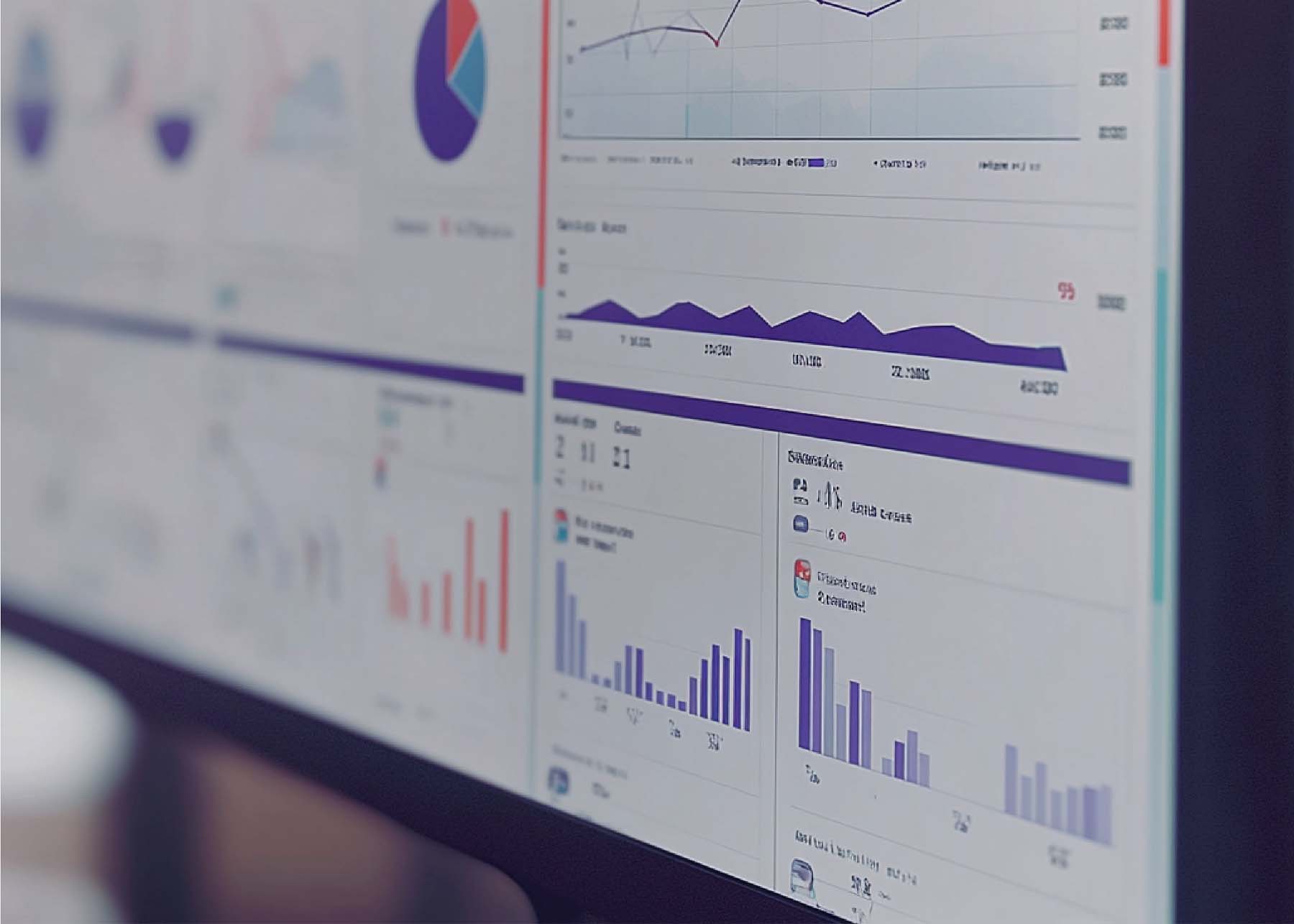
In today’s data-driven world, tracking the right digital marketing metrics is crucial for understanding the effectiveness of your campaigns and making informed decisions that drive growth. With countless metrics available, it’s easy to get overwhelmed. However, focusing on the key performance indicators (KPIs) that align with your business goals will help you measure success, optimise strategies, and achieve better results. This article outlines the essential metrics every business should monitor to ensure digital marketing success.
Website Traffic Metrics
Website traffic metrics are fundamental indicators of your online visibility and audience engagement. They provide insights into how many people are visiting your website, how they got there, and what they do once they arrive.
Key website traffic metrics to monitor include:
- Total Visits: The total number of visits to your website within a specific period. This metric gives you a broad view of your website’s reach.
- Traffic Sources: Understand where your traffic is coming from—organic search, paid ads, social media, direct traffic, or referrals. This helps you identify which channels are most effective.
- Bounce Rate: The percentage of visitors who leave your site after viewing only one page. A high bounce rate could indicate that your landing page is not relevant or engaging enough.
- Pages per Session: The average number of pages a visitor views during a session. This metric provides insights into how engaging your content is and how well your site encourages exploration.
- Average Session Duration: The average time visitors spend on your site. Longer sessions usually indicate higher engagement.
Tracking these metrics helps you understand your audience’s behaviour and the effectiveness of your marketing efforts in driving traffic to your site.
Conversion Metrics
Conversions are the ultimate goal of most digital marketing efforts, whether it’s a sale, lead generation, or another desired action. Conversion metrics tell you how well your marketing campaigns are driving these actions.
Important conversion metrics include:
- Conversion Rate: The percentage of visitors who complete a desired action, such as making a purchase, signing up for a newsletter, or filling out a contact form. A higher conversion rate indicates that your marketing efforts are effectively driving desired outcomes.
- Cost Per Conversion (CPC): The amount you spend to acquire a conversion. This metric helps you understand the efficiency of your marketing spend and identify areas for cost optimization.
- Lead-to-Customer Rate: The percentage of leads that convert into paying customers. This metric is crucial for evaluating the effectiveness of your lead nurturing and sales processes.
- Cart Abandonment Rate: For e-commerce businesses, this metric tracks the percentage of users who add items to their cart but do not complete the purchase. Reducing cart abandonment can significantly increase revenue.
Monitoring conversion metrics allows you to optimise your campaigns for better performance and higher ROI.
Engagement Metrics
Engagement metrics measure how actively your audience interacts with your content, which is a strong indicator of how well your marketing efforts resonate with them.
Key engagement metrics to track include:
- Social Media Engagement: This includes likes, shares, comments, and clicks on your social media posts. High engagement indicates that your content is relevant and appealing to your audience.
- Email Open Rate: The percentage of recipients who open your emails. A high open rate suggests that your subject lines are compelling and your audience is interested in your content.
- Click-Through Rate (CTR): The percentage of users who click on a link in your email, ad, or social media post. A higher CTR indicates that your content is driving interest and action.
- Time on Page: The amount of time users spend on a specific page of your website. This metric helps you understand which content is most engaging.
By analysing engagement metrics, you can refine your content strategy and improve your audience’s overall interaction with your brand.
SEO Performance Metrics
Search engine optimisation (SEO) is critical for driving organic traffic to your website. Monitoring your SEO performance helps you understand how well your site ranks in search engines and identify opportunities for improvement.
Key SEO metrics to monitor include:
- Organic Search Traffic: The number of visitors who arrive at your site through unpaid search engine results. This metric reflects your website’s visibility in search engine results.
- Keyword Rankings: The position of your targeted keywords in search engine results pages (SERPs). Tracking keyword rankings helps you evaluate the effectiveness of your SEO efforts.
- Backlinks: The number and quality of external websites linking to your content. High-quality backlinks improve your site’s authority and search engine rankings.
- Page Load Time: The time it takes for your website to load. A faster load time improves user experience and can positively impact your SEO rankings.
Regularly tracking these metrics ensures that your SEO efforts are driving traffic and contributing to your overall digital marketing success.
Customer Retention Metrics
While acquiring new customers is important, retaining existing ones is equally crucial for long-term success. Customer retention metrics help you understand how well you’re maintaining relationships with your existing customers.
Important customer retention metrics include:
- Customer Lifetime Value (CLV): The total revenue you can expect from a customer over the duration of their relationship with your business. Increasing CLV can significantly boost profitability.
- Churn Rate: The percentage of customers who stop doing business with you over a given period. A high churn rate may indicate issues with customer satisfaction or product quality.
- Repeat Purchase Rate: The percentage of customers who make more than one purchase. A higher repeat purchase rate suggests strong customer loyalty.
- Net Promoter Score (NPS): A measure of customer satisfaction and loyalty, based on how likely customers are to recommend your business to others.
Tracking these metrics helps you develop strategies to improve customer satisfaction, reduce churn, and increase customer loyalty.
ROI and Revenue Metrics
Ultimately, the success of your digital marketing efforts should be measured by their impact on your bottom line. ROI and revenue metrics provide a clear picture of how well your marketing investments are paying off.
Key metrics to monitor include:
- Return on Investment (ROI): The revenue generated from your marketing efforts compared to the cost of those efforts. A positive ROI indicates that your campaigns are profitable.
- Customer Acquisition Cost (CAC): The cost of acquiring a new customer. Lowering your CAC while maintaining or increasing your revenue is key to achieving sustainable growth.
- Sales Growth: The increase in sales revenue over a specific period. This metric helps you assess the direct impact of your marketing efforts on your sales performance.
- Marketing-Generated Revenue: The percentage of total revenue that can be directly attributed to your marketing campaigns. This metric helps you understand the effectiveness of your marketing strategy in driving business growth.
Regularly reviewing ROI and revenue metrics ensures that your marketing efforts are aligned with your financial goals and driving meaningful results.
Conclusion
Tracking the right digital marketing metrics is essential for understanding your performance, optimising your strategies, and driving business growth. By focusing on key metrics such as website traffic, conversions, engagement, SEO, customer retention, and ROI, you can make data-driven decisions that lead to better results.
At Develte, we specialise in helping businesses monitor and analyse their digital marketing metrics to achieve success. Whether you need support in setting up your analytics, interpreting data, or optimising your campaigns, our team is here to guide you every step of the way.




